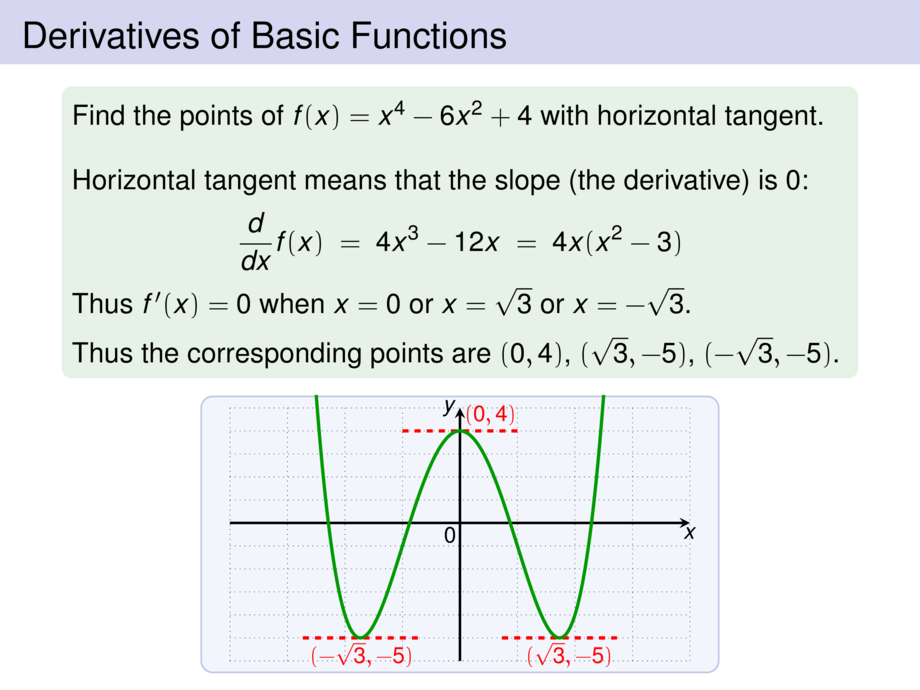
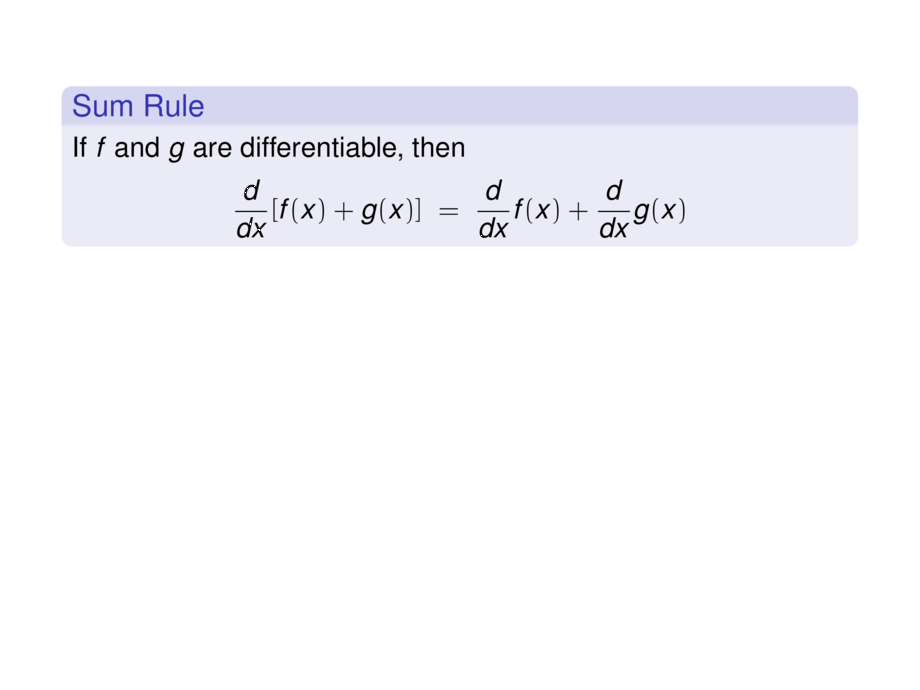
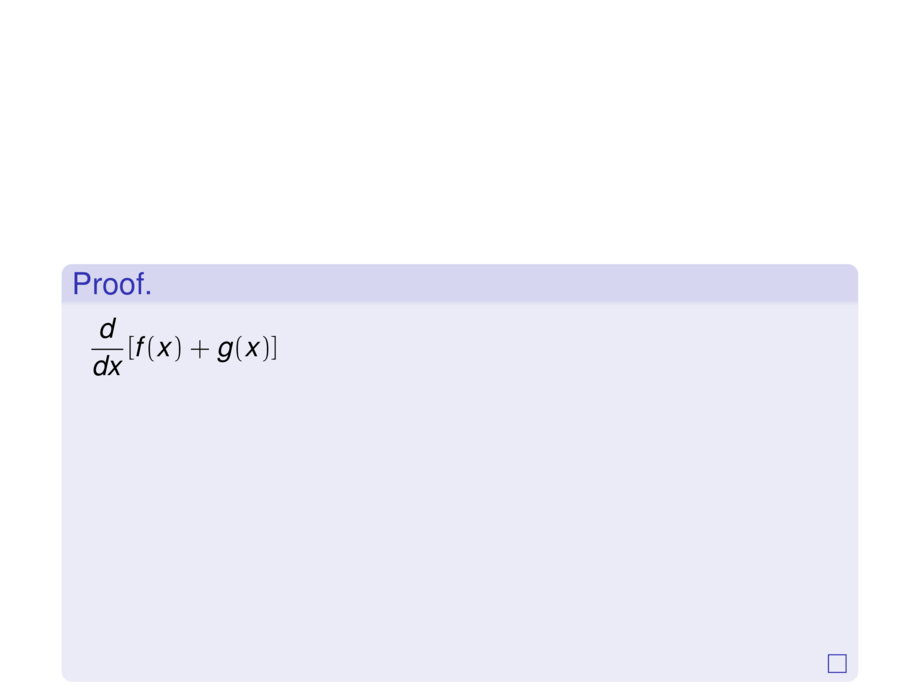
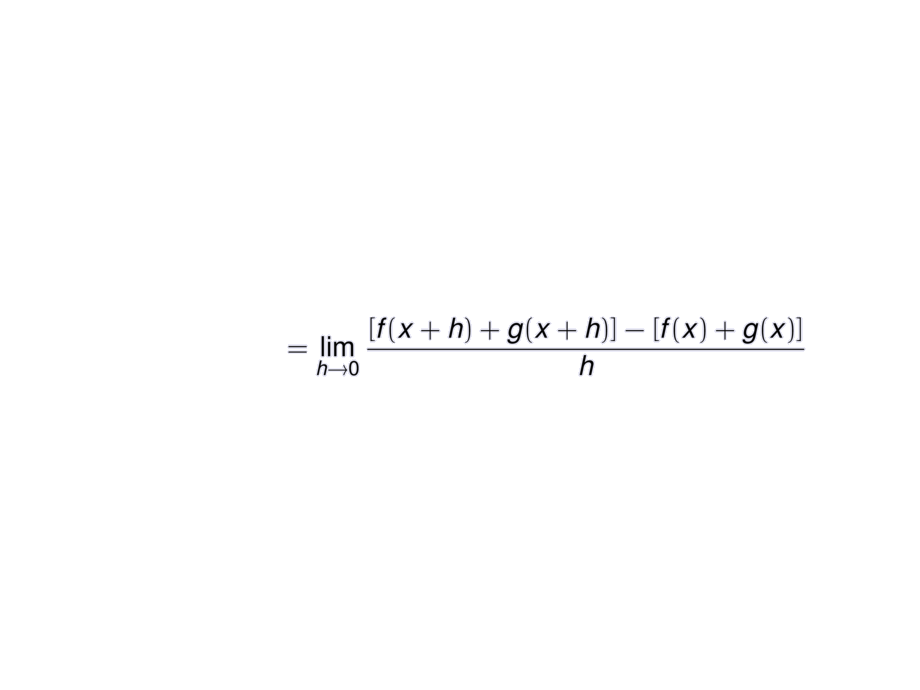
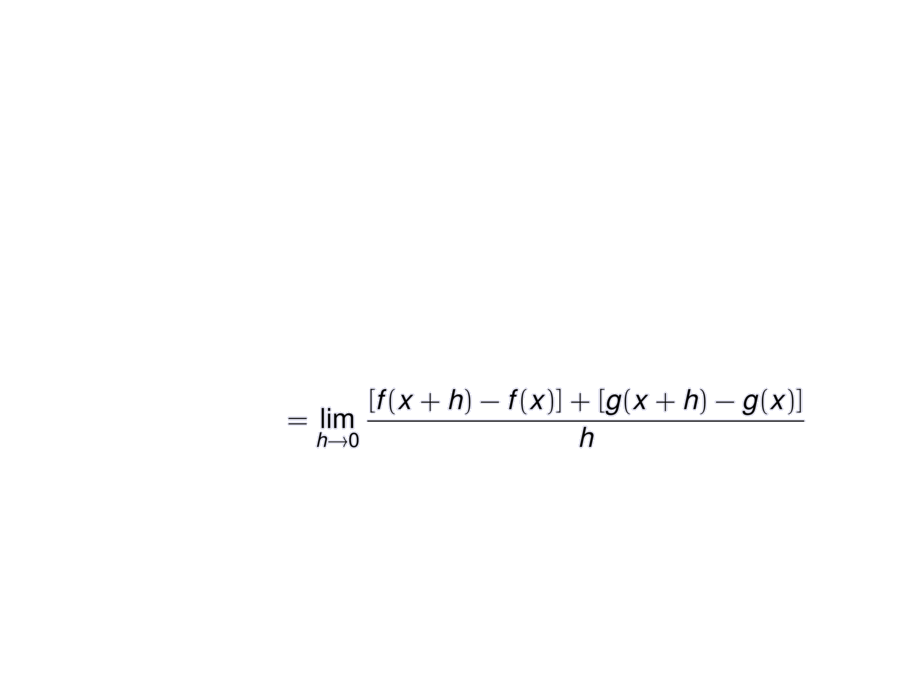
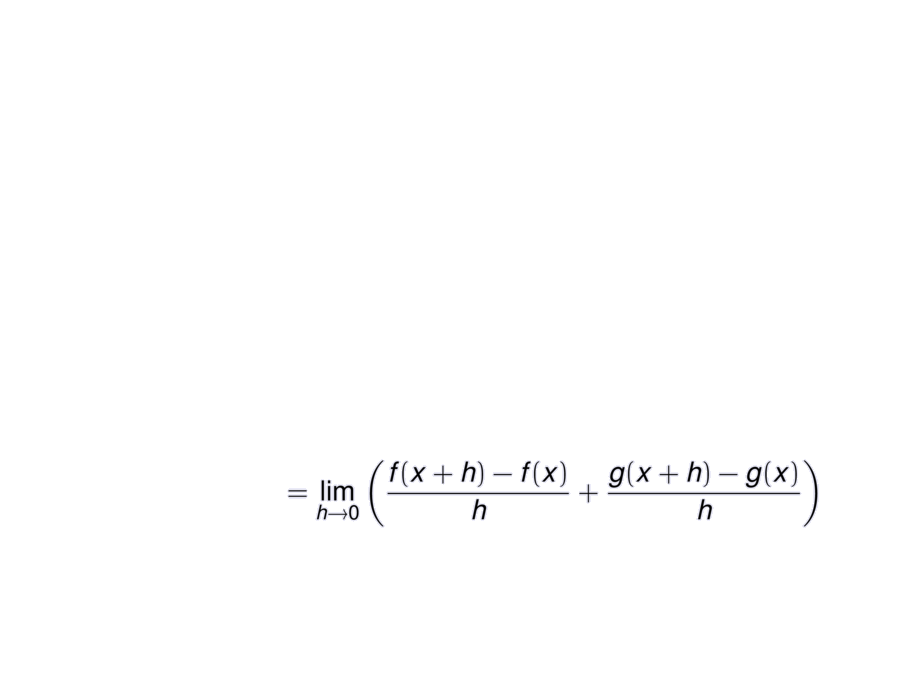
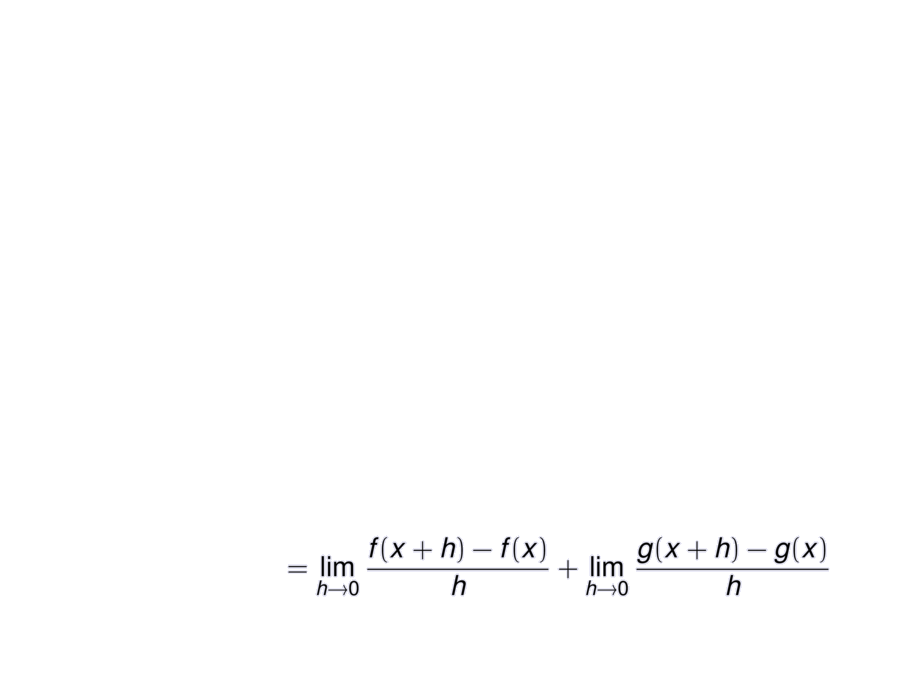





























































































53/81
\begin{frame}
\frametitle{Derivatives of Basic Functions}
\begin{block}{Sum Rule}
If $f$ and $g$ are differentiable, then
\begin{talign}
\frac{d}{dx}[f(x) + g(x)] \;=\; \frac{d}{dx}f(x) + \frac{d}{dx}g(x)
\end{talign}
\end{block}
\pause
\begin{proof}
\begin{malign}
\frac{d}{dx}[f(x) + g(x)]
&\mpause[1]{ = \lim_{h\to 0} \frac{[f(x+h) + g(x+h)] - [f(x) + g(x)]}{h} } \\
&\mpause[2]{ = \lim_{h\to 0} \frac{[f(x+h) - f(x)] + [g(x+h) - g(x)]}{h} } \\
&\mpause[3]{ = \lim_{h\to 0} \left( \frac{f(x+h) - f(x)}{h} + \frac{g(x+h) - g(x)}{h} \right) } \\
&\mpause[4]{ = \lim_{h\to 0} \frac{f(x+h) - f(x)}{h} + \lim_{h\to 0} \frac{g(x+h) - g(x)}{h} } \\
&\mpause[5]{ = \frac{d}{dx}f(x) + \frac{d}{dx}g(x) }
\end{malign}
\end{proof}
\end{frame}

